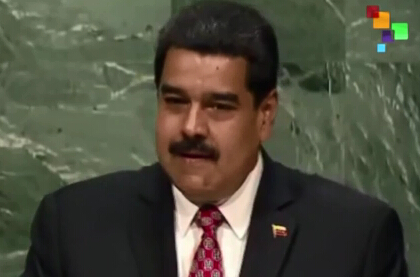Venezuela's president is giving state employees three-day weekends in April and May in an attempt to save electricity.
四五月期間,委內瑞拉總統給國家公務人員三天周末假期,試圖節省電力。
A prolonged drought in the country has depleted water levels at hydroelectric power plants. Levels at a dam that supplies 75 percent of the capital's power are getting so low, the government might have to shut it down soon.
國家長期的干旱已經耗盡水電站的水位。一個供應首都百分之75電力的大壩水位正越來越低,政府可能會很快不得不將其關閉。
In addition to temporarily cutting the state's workweek, President Nicolas Maduro is asking everyone to drastically cut their energy consumption. Heavy industrial companies will also be asked to cut energy consumption by an additional 20 percent.
除了暫時減短國家工作周時間,總統尼古拉斯·馬杜羅要求大家大幅削減能源消耗。重工業企業也將被要求削減額外百分之20的能量消耗。

It's unclear how the shorter workweek for state employees will affect schools or the private sector. Regardless, not everyone in Venezuela is convinced the plan will actually work, since workers may still use electricity at home.
目前還不清楚國家公務人員縮短每周工作時間會如何影響學校和私營部門。不管怎樣,在委內瑞拉并非所有的人都相信這個計劃會真正實行,因為工人們可能仍會在家里用電。
Venezuela has already topped the Cato Institute's Misery Index for 2015, thanks to high inflation and unemployment rates. And potential blackouts throughout the country aren't likely to improve the country's situation.
委內瑞拉已位于2015年卡托研究所經濟失調指數之首,由于高的通貨膨脹率和失業率。全國性停電不太可能改善國家的情況。
譯文屬可可原創,僅供學習交流使用,未經許可請勿轉載。











